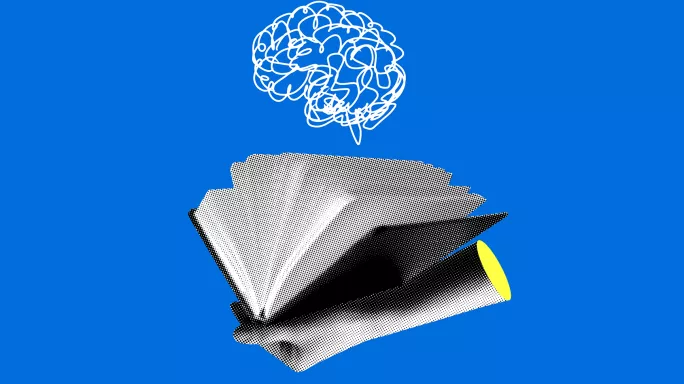
- Home
- Teaching & Learning
- General
- Working memory: education’s unfinished revolution
Working memory: education’s unfinished revolution

Year 2 teacher Sarah Oberle often wondered why her young students had difficulty with certain tasks - ones she had assumed were, if not easy, then at least straightforward.
Blending a group of sounds together, for example, when sounding out a new word - why did so many students seem to forget the first sounds and only remember the last sound? For 15 years in the classroom, Oberle was unsure.
It was only after she started working toward her doctorate in education leadership and cognitive sciences in the US that Oberle learned about the concept of working memory - the mind’s “staging area”, where information can be manipulated and processed in the short term, but which is also a place that’s easily overloaded when there is too much information or there are too many directions.
Working memory’s limitations helped to explain her students’ challenges: when first learning to read, their young minds were unable to hold all those sounds together in their heads at the same time. It was an “a-ha” moment for Oberle’s teaching. “Why didn’t I know about this?” she asks. “Everything started to make sense to me when I started learning about working memory and cognitive load.”
Many other teachers across the world have been on similar journeys and it’s generally considered a positive sign that they now have greater awareness of working memory. But is all that research and knowledge finding its way into classrooms accurately and in a way that helps pupils to learn?
Working memory and education
While models of how memory works in the human mind have been around since the early 1970s, only recently have the understandings from cognitive science about working memory begun to be disseminated in schools, and been viewed as relevant to learning.
Experts have said that an understanding of working memory is among the “most important things teachers should know” to be effective in classrooms. Professor Dylan Wiliam has said that the fact that humans possess a limited short-term memory should guide “the whole of education”.
Yet it’s unclear how many teachers have a solid understanding of the mind’s memory system and how it applies to learning - a recent nationally representative survey determined that UK teachers showed “some understanding” of working memory and cognitive load theory, perhaps because of official guidance for new teachers from the Department for Education.
Knowledge of cognitive science among American teachers is generally far behind that of their British peers. In the US, most teachers get little information about how the mind works generally in their training programmes, and informal surveys suggest that understanding working memory is no exception.
Even where there is knowledge, the extent of it - and how effectively it is being translated into the classroom - requires more work, according to researchers.
They say a nuanced understanding of the role working memory plays in learning - along with being able to recognise the signs of poor working memory in some students - can help students learn more effectively. But schools have a long way to go, these experts say, before they’re effectively deploying the research in ways that can help all students.
“There’s currently a lot of work trying to make memory research more applied to improve learning,” says Karen Campbell, an associate professor of psychology at Brock University, in Ontario, Canada. “It can improve teaching and student performance to take this information into account.”
What is working memory?
Working memory plays a central role in learning, since it’s the place in the mind where students take in new information and manipulate it. From working on an algebra problem to composing an essay, working memory is the place “where thinking happens, where we bring together ideas and transform them into something new”, according to University of Virginia cognitive scientist Daniel Willingham in his 2010 book, Why Don’t Students Like School?
Students use their working memories all day at school, learning new information. For example, working memory is what allows a student to take notes while someone is talking, listening for important pieces of information, pulling them out and remembering them long enough to write them down.

Often imagined as a real-time sketchpad or workspace for the mind, working memory is filled with information coming from two places: sensory input, including what students are reading or listening to at any given moment, and long-term memory, where knowledge is stored, according to cognitive psychologist Hector Ruiz Martin, author of How Do We Learn? A Scientific Approach to Teaching and Learning.
Working memory can process both visual and auditory information simultaneously, but is limited in the number of items it can hold at one time. Individual differences can vary greatly, but scientists estimate that most young adults can hold three to five meaningful items or “chunks” of information in their working memory at once. When working memory is overloaded with more than five or six items, learning stops.
“Working memory serves as a bottleneck that dictates our capacity to learn; everything we consciously learn must pass through it,” Martin writes. “It is the ‘place’ where we can connect our prior knowledge with new experiences and information to construct fresh insights.”
Research has shown that working memory capacity is strongly correlated with fluid intelligence, according to Campbell, and is largely genetic - about half of the variation between people is attributed to genetic differences.
There’s also evidence to suggest that working memory capacity improves with age - that the number of pieces of information able to be held at one time increases throughout childhood into adolescence and peaks in young adulthood.
That’s partially a function of there being more knowledge stored in long-term memory to work with, says Nelson Cowan, director of the Working Memory Laboratory at the University of Missouri, but research also shows that capacity simply improves over time as well.
“As you grow up and your brain develops, it increases your ability to hold more things in your mind at once,” he explains.
More on memory:
- How to stop working memory making learning harder
- Daniel Willingham on memory and metacognition
- What is cognitive load?
Newer research suggests that in addition to its role as an information synthesiser, working memory acts as the mind’s “quality control”, pruning out less useful information or stopping students from making silly mistakes.
In one recent study, Cowan and lead author Dr Eryn Adams tested four-year-olds’ ability to hold separate pieces of information in their working memories at the same time: in this case, learning to use the passive voice - “The flowers were being watered by the girl” - instead of the more natural “The girl is watering the flowers”, while also trying to recall a string of numbers.
The researchers hypothesised that under a “memory load” of a lot of new information, children would forget to use the newly learned passive voice and revert to the active voice, but that’s not what happened.
“When children did not have to retain a separate memory load, they tended to disregard instructions and produce the sentence in the more familiar, active voice (‘The girl watered the flowers’), which allowed them to get the meaning correct,” Cowan says. “When they had a memory load - either digits or especially visual items - they used the passive voice as instructed, but made some silly mistakes in the process, like ‘The girl was watered by the flowers.’
“Our idea is that working memory plays a role as a monitor,” Cowan says. “It’s not the primary driving force, but it’s monitoring what’s being said.”
Working memory, along with the ability to avoid distractions and focus attention, is a crucial part of the executive functioning skills that help students plan, organise and problem-solve - skills that experts say are crucial to the kind of academic learning students undertake all day in school.
Attention and working memory are linked, as attention plays an important role in the formation of new ideas. Attention is the mechanism that holds three or four items in the working memory, to put them in order and make sense of them.
Cowan explains the relationship between memory and attention this way: when hearing the word “tiger”, most people call up in their working memory an image of a large cat with stripes. To do so, “you have to remember all those features at the same time and realise that they go together”, he says.
One piece of missing information changes the mind’s image in major ways: if you don’t know that a tiger is a cat, your mind will end up with a picture of a zebra. Forget the stripes? You have a lion. And without the “large”, the animal could be a house cat.
A student’s ability to integrate all three features at the same time is a product of the focus of attention, Cowan explains.
How working memory works in the classroom
Working memory is required for much of the work students do at school - and as Martin writes in How Do We Learn?, some are more difficult than others, like solving a complex word problem or following a long string of directions. Students with poor working memory often struggle to complete those tasks.
Psychologist Susan Gathercole, former director of the Medical Research Council Cognition and Brain Sciences Unit at the University of Cambridge, says researchers estimate that 10 to 15 per cent of students have some kind of working memory deficit. Her research has shown that students with poor working memory display certain characteristics that show up often in classrooms - not paying attention, forgetting directions, abandoning complicated tasks.

These students also appear easily distracted and can struggle with academic progress.
Poor working memory plays a significant role in conditions that can present learning challenges, like dyslexia and ADHD, though researchers are unsure why. Working memory assessments, like having to recall a long string of numbers in order, are often highly predictive of learning problems with both reading and maths.
“If you look at kids when they’re learning, working memory is everything,” Gathercole argues. “If you want to predict or identify current learning status, and predict whether or not a child is going to have learning difficulties, working memory assessments do better than anything else.”
Understanding the role of working memory in learning, and knowing that some students in every class may struggle with directions, distractions and complex tasks, should prompt teachers to think about how they’re presenting material and information to students.
While brain training exercises like practising memorising strings of numbers have not been shown to improve working memory and academic learning generally, Gathercole says, there are other ways to support students who might struggle with complex tasks.
In Working Memory and Learning: A practical guide for teachers, Gathercole and colleague Tracy Packiam Alloway say teachers should be consistent with breaking complex instructions down into steps, and monitor the informational content of reading material to ensure students’ thinking power isn’t overloaded.
Educators can also teach students strategies that get information “out of your head” and on to paper to reduce working memory load.
According to Gathercole, strategies often employed by dyslexic college students can help. Recording lectures, using visual aids such as flowcharts and diagrams, and taking notes manually instead of relying on reading a handout are all ways to keep information flowing while allowing more space in working memory.
Helping students to put more information into long-term memory, sometimes also known as “memorising”, can also help to manage the cognitive load associated with learning something new and free up more space in working memory. Research has shown that students with quick recall of maths facts, for example, can work out complex maths problems more efficiently.
Understanding the link between knowledge stored in the long-term memory and the working memory is the reason why former high school Spanish teacher and instructional specialist Amy Pento used daily practice from a set of 80 vocabulary flashcards throughout the school year. The faster students locked key vocabulary into their long-term memory, she said, the easier it was for them to concentrate on other aspects of learning Spanish, such as grammar, pronunciation and sentence structure.
“People think memorisation is bad; they want to do ‘higher order thinking’, but you can’t do higher order thinking without something to think about,” Pento says. “I created a classroom routine around flashcards. We did them every day because of working memory.”
How far has this knowledge leapt from pedagogy to behaviour and pastoral approaches? Not enough - or at all - in many cases, some argue. And is what is happening in classrooms around working memory going far enough?
Next steps for working memory and education
A few years ago, middle-school principal Terra Lynch instituted a term-long course for new Year 6 students in her Austin, Texas independent school, to “bridge the gap” between elementary and middle school. The middle school years are a crucial point for working memory - responsibilities for students ramp up and include having to be more organised, remember more instructions and information, and be able to take notes while the teacher is talking, all while working memory capacity is still developing.
Lynch’s experience with her own two dyslexic children informed her decision to formally explain to students how executive functioning skills work, including working memory, and how that knowledge might help them manage their own learning.
The course, which Lynch jokingly called the “How-do-I-remember-stuff? class”, includes information on how to use a planner, how to write down and keep important information such as computer passwords, and how to take notes effectively.
“I just explain it to them - your memory is limited, it can get overloaded,” Lynch says. “This is something you have to plan around. You are not going to remember everything. So here are some things you can do to help you remember what you need to remember.”
Kids often overestimate the amount of information they have in working memory, Cowan says, and believe that if they know it now, they’re going to know it later, which isn’t always the case. Making students more aware of how much they are able to remember, even just testing them with a simple memory test of a list of numbers, is an effective way to show students that they remember less than they think they do.
“Human beings being more aware of their own limitations is usually pretty helpful,” Cowan advises.
Putting working memory into practice
Another factor that needs more attention is identification. Big differences in student brain development, along with genetic differences, mean that teachers might be working with students whose working memory capacities are all over the place. In a typical class of eight-year-olds, the bottom 10 per cent might have the working memory of a five-year-old, while the top 10 per cent may have the working memory of a young adult.
“Within a single class of 30 kids, you’ve got a whole developmental age range; it’s massive variability,” Gathercole says.
With this information in mind (so to speak), experts say school structures should support a wide range of variability, and supports should be woven more fully into the structure of school. Gathercole says that includes better teacher training, better assessments and curriculum design.
Screening alone could help teachers to better understand what students will need to learn, says Gathercole, and help with making decisions on how and what to teach. “We need to have good screening tools that teachers have to be empowered to use,” she argues.
Policymakers should also know more about working memory and its implications.
“We really need to go beyond just showing correlations between working memory and learning and saying it’s important,” Gathercole says. “We need to start having partnerships with practitioners and also with policymakers. It has to be collaboration, it has to be co-production. More than just knowing about it.”
For the latest research, pedagogy and classroom advice, sign up for our weekly Teaching Essentials newsletter
topics in this article



